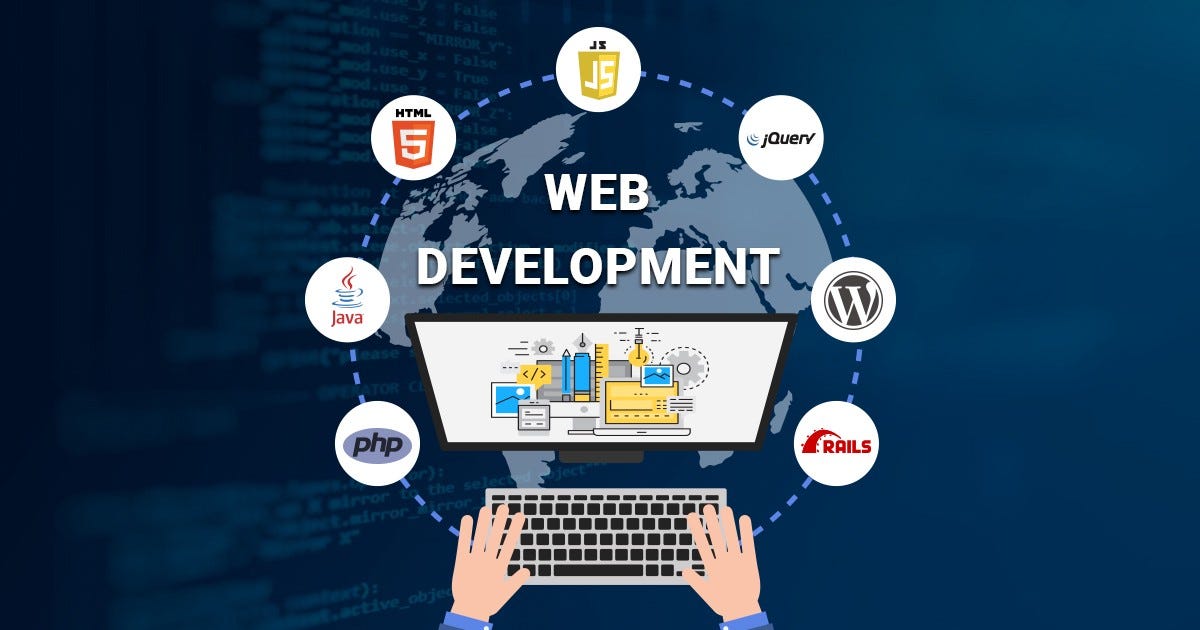
Web Design: Essential Website Development Tips for Beginners
Building a website is a crucial step for any business or personal project. Web development is complex, with the right

–The ever changing Google Search algorithm updates keep making it hard for website owners.
–Recently, AI changes are hitting smaller websites the hardest.
–Updates like the “helpful content update” focus on giving more importance to content made by people.
–They also lower the rank of spam and text made by AI. Because of this, many small businesses find it tough to show up online.
–Let’s look at how these changes are changing the online world and what steps businesses can take to stay important.
–Google’s updates, like the “helpful content update,” aim to improve user experience by showing high-quality content.
–But these updates can hurt smaller websites.
–For example, Retro Dodo, which focuses on handheld gaming, saw a huge 90% drop in traffic after the update.
–This loss made its owner, Brandon Saltalamacchia, lay off workers and pay for the website himself.
–Likewise, Travel Lemming, a travel site, had a 94% fall in search traffic. This shows how much Google’s algorithm changes can impact many sites.

–Smaller websites are hit harder by Google’s focus on trusted sources.
–Features like “From Sources Across the Web” make it harder for independent creators to be seen in search results.
–Also, “parasite SEO” lets less reliable content rank higher, making it tough for real creators.
–These trends show that it is important to have new strategies to keep up in this tough environment.
–Google’s search method keeps changing. It wants to improve content and make the user experience better.
–Google released a helpful content update in September 2023 that puts a spotlight on content created for users, not just for SERPs.
–In contrast, Core Updates, like the ones in October 2023 core update and March 2024 core updates, affect organic rankings in a wider way.
–These updates help to improve how we judge the relevance and authority of content.
–The Helpful Content Update is now a key part of how Google ranks sites. This means that being helpful is crucial for your SERP rankings.
–The update targets websites that rely on too many SEO tricks but lack original and detailed content.
–For example, travel sites with lots of ads or affiliate links saw their visibility drop in September 2023.
–Core Updates help make search results better. The Helpful Content Update pays attention to what users want.
–Both updates can really change rankings across many industries. As more content comes from AI, Google tries to improve its search algorithm.
–For example, the June 2024 spam algorithm update focuses on stopping low-quality content. This helps keep the search environment healthier.
–AI tools are very important now for making good content fast using all primary and secondary keywords.
–But as more AI content comes out or content abuse happens, Google’s ranking system is changing.
–They want to tell the difference between real human writing and AI fake content. This makes it tricky for website owners.
–While AI can help save time, depending on it too much without checking can cause problems.
–Platforms that use AI for gathering content are changing how people search.
–Features like AI-made summaries at the top of search engine results pages make it harder for smaller websites to get clicks.
–For example, Travel Lemming’s thorough lists are often hidden behind Google’s highlighted entries, reducing the worth of original content.
–This trend shows that businesses need to create special and interesting material that can compete with AI-driven content.
–Established brands and big platforms often get more from Google’s updates than they should.
–For example, websites like Forbes or BuzzFeed, which collect content or create reviews without deep product testing, usually rank higher than smaller, more focused sites.
–This unfair system makes it hard for smaller players to compete.
–They have to face not only AI but also established companies that are lifted by their size.
–Retro Dodo’s big drop shows how unstable smaller websites can be.
–Even with a clear focus and a loyal audience, the site fell in rankings because of Google’s new rules for “helpful content.” In the same way, Travel Lemming faced issues from AI-generated spam and changes in algorithms, which hurt their real efforts.
–These cases show how important it is to have a mix of strategies and be strong in SEO.
–The rise of practices such as parasite SEO makes things even harder.
–A good example is Travel Lemming, which dealt with plagiarism from well-known sites like the Miami Herald.
–They allegedly used AI to copy Travel Lemming’s content. Even after taking action, these issues still affect the trustworthiness of smaller creators.
–This situation shows why it is important to enforce Google’s rules more strictly.
–Specialized review sites, such as HouseFresh, carefully test and review products.
–They have noticed a big drop in traffic after Google’s Product Reviews Update.
–On the other hand, larger sites usually take the top spots in search results with simple “best of” lists that require little research.
–This difference shows it’s becoming harder for smaller niche sites to compete when they don’t have enough resources.
–To compete well, businesses need to create content that is unique and focused on the user.
–Using engaging formats like videos, infographics, and interactive tools can grab the audience’s attention.
–Also, tools like Google Analytics provide helpful data. This information helps to improve strategies and better meet what users want.
–Relying only on Google Search for traffic is becoming less safe.
–It’s good to look at other platforms like social media, email marketing, and niche forums. These can bring in more steady and varied traffic.
–For example, some creators are now using YouTube to connect with their audience directly. This way, they don’t depend on search engines as much.
–Voice search and mobile-first indexing are changing how users connect with content. It’s important to optimize for these trends.
–You can do this by including natural language queries and making sure your site works well on mobile devices.
–Also, using schema markup can help your content show up better in voice searches and featured snippets.
–Businesses need to actively fight against spam and copying of content by AI.
–Tools like Copyleaks or special plagiarism detection software can help find and deal with bad content practices.
–Working with Google to report these issues can also protect real content from being hidden.

–The increase of spam created by AI brings up big ethical problems.
–Websites such as Mother Earth Travel are blamed for using AI to get around detection systems. This shows that we need to be open about what we do.
–Keeping content true by using strong editorial standards can help businesses keep their trust.
–AI tools can help create content faster. However, it is important to keep a human connection to build trust.
–Companies should mix automated efforts with real interaction. This way, their content connects with people and follows good practices.
–Google is working to stop site reputation abuse. They are penalizing “white-hat” SEO violations. But businesses need to help too.
–They should focus on creating ethical content. This means avoiding shortcuts. By doing this, companies can ensure good quality.
–It helps with trust and long-term success.
–Google Search Console is a vital tool for website owners and SEO professionals.
–It provides valuable insights into how your site is performing in Google search results.
–By regularly monitoring Google Search Console, you can stay informed about any manual actions taken against your site, do website optimization for better performance, and conduct audits to identify areas for improvement.
–Google is working hard to connect with creators. They host meetings to hear feedback. This shows that they care about improving search quality.
–Still, the responses from attendees are mixed. This means businesses shouldn’t depend only on Google for answers.
–It’s important to adapt and keep learning.
–To do well in a changing market, businesses need to focus on creating evergreen content and use flexible SEO strategies.
–They should check their performance often, pay attention to user feedback, and keep up with changes in algorithms to succeed over time.
–With Google focusing on friendly and interactive features, businesses can try new ways to create exciting content.
–This means they can use AR/VR experiences, create fun quizzes, or give personalized suggestions.
–These strategies can help them stand out in a search world filled with AI.
–Google’s AI changes are changing the online world. This brings both problems and chances for businesses.
–Smaller websites may find it hard to stay visible during these times.
–However, they can reduce risks by using smart strategies, improving content, and looking for different ways to get traffic.
–By mixing new ideas with good practices, businesses can handle the challenges of AI search.
–This will help them keep their spot in the changing online environment.

Building a website is a crucial step for any business or personal project. Web development is complex, with the right

Outsource social media management services has become a vital part of business success, with the right agency or freelancer you
Ready to elevate your business? Let’s talk about creating a website, launching campaigns, or boosting your online presence with tailored solutions.